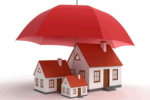Florida Is Not Headed For A Housing Crash

Florida is now America’s fast growing state. According to recent census data, the Sunshine State added over 400,000 additional people between July 2021 to July 2022. It was a growth of 1.9%, bringing the total population to 22,244,823. That makes it faster-growing than Texas, which has the second-largest population in the United States, trailing only California. Florida is a popular destination for retirees, second-home buyers, and investors which is driving up demand for housing.
Florida has consistently maintained one of the highest rates of job growth in the U.S., making it an appealing destination for those seeking employment opportunities and a vibrant lifestyle. This influx of residents contributes to the demand for housing in the state, stimulating the real estate market.
Key Market Indicators:
· For Sale Inventory: As of December 31, 2023, there are 133,691 properties listed for sale, showcasing a diverse range of options for potential buyers.
· New Listings: In the same period, 32,615 new listings have entered the market, providing fresh opportunities for those in pursuit of their dream homes.
· Median Sale to List Ratio: The median sale to list ratio, a key metric indicating market competitiveness, stands at 0.977 as of November 30, 2023.
· Percent of Sales Over List Price: Notably, 14.5% of sales in November 30, 2023, exceeded the list price, indicating a competitive environment.
· Percent of Sales Under List Price: On the other hand, 67.9% of sales during the same period were below the list price, providing insights into negotiation dynamics.
Florida’s strong population growth, diverse job market, tourist attractions, affordable property prices, tax benefits, and diversified economy all contribute to making it a hot spot for real estate investment.














 Kim N. Bregman
Kim N. Bregman